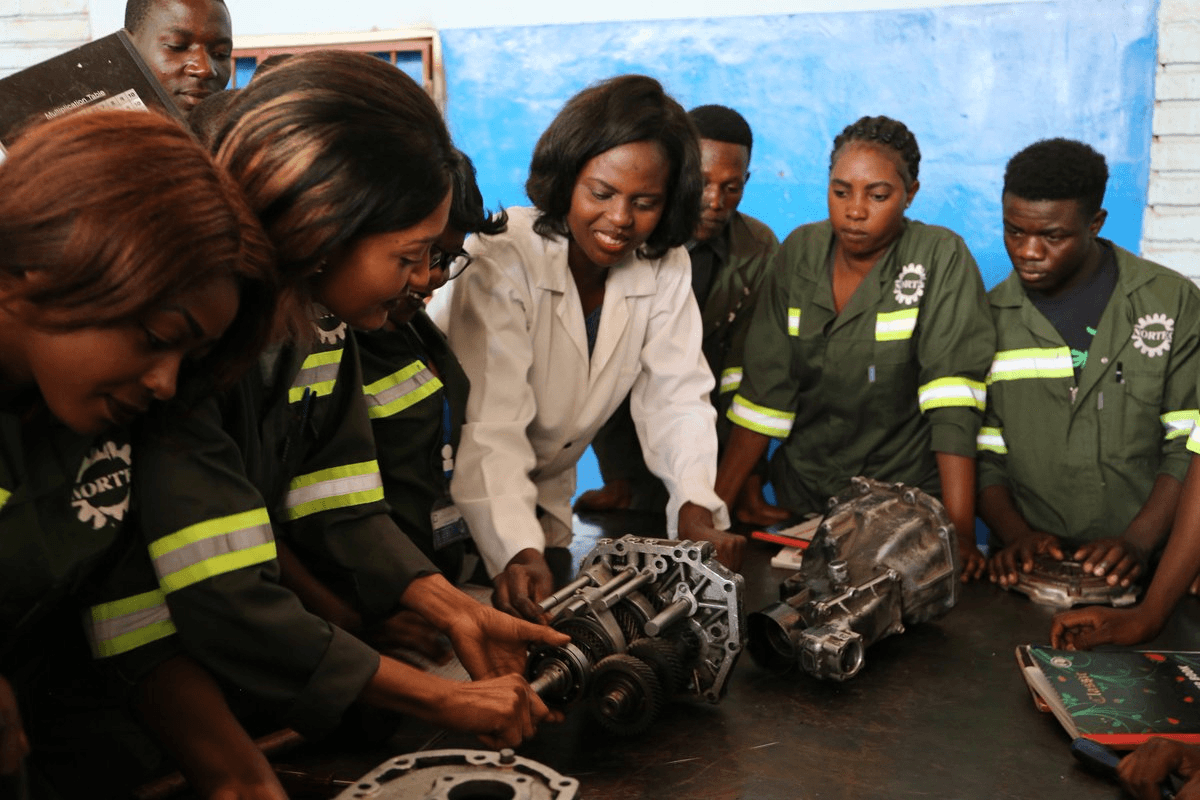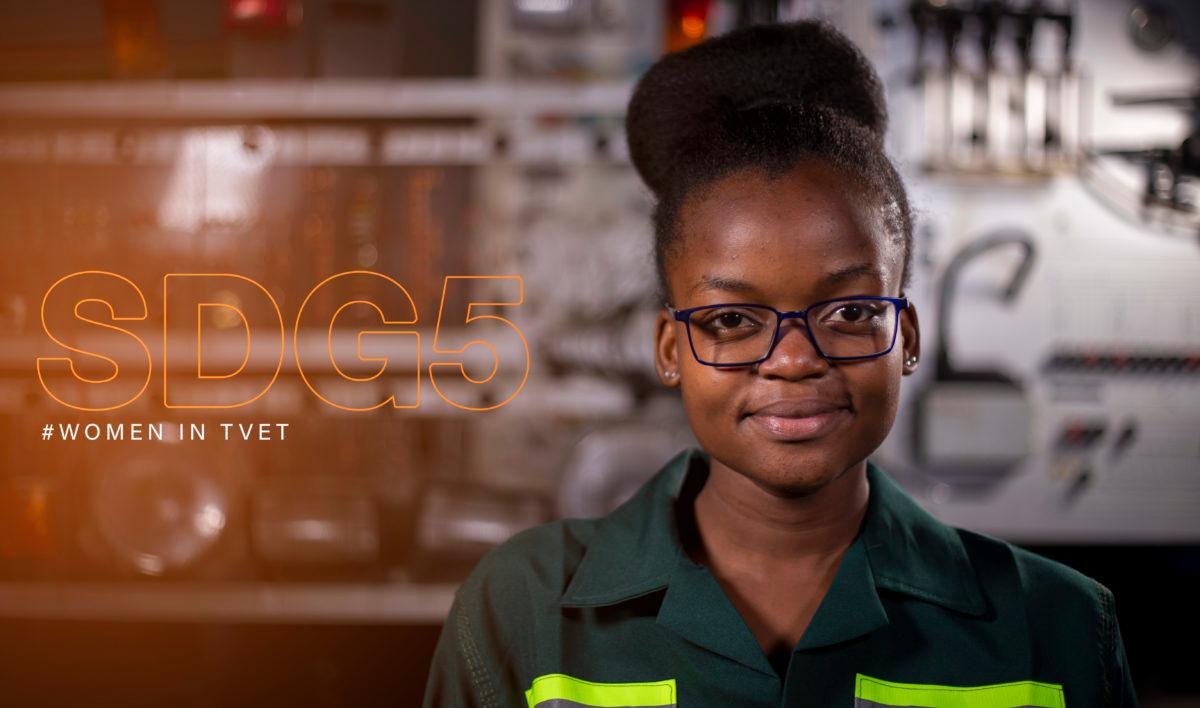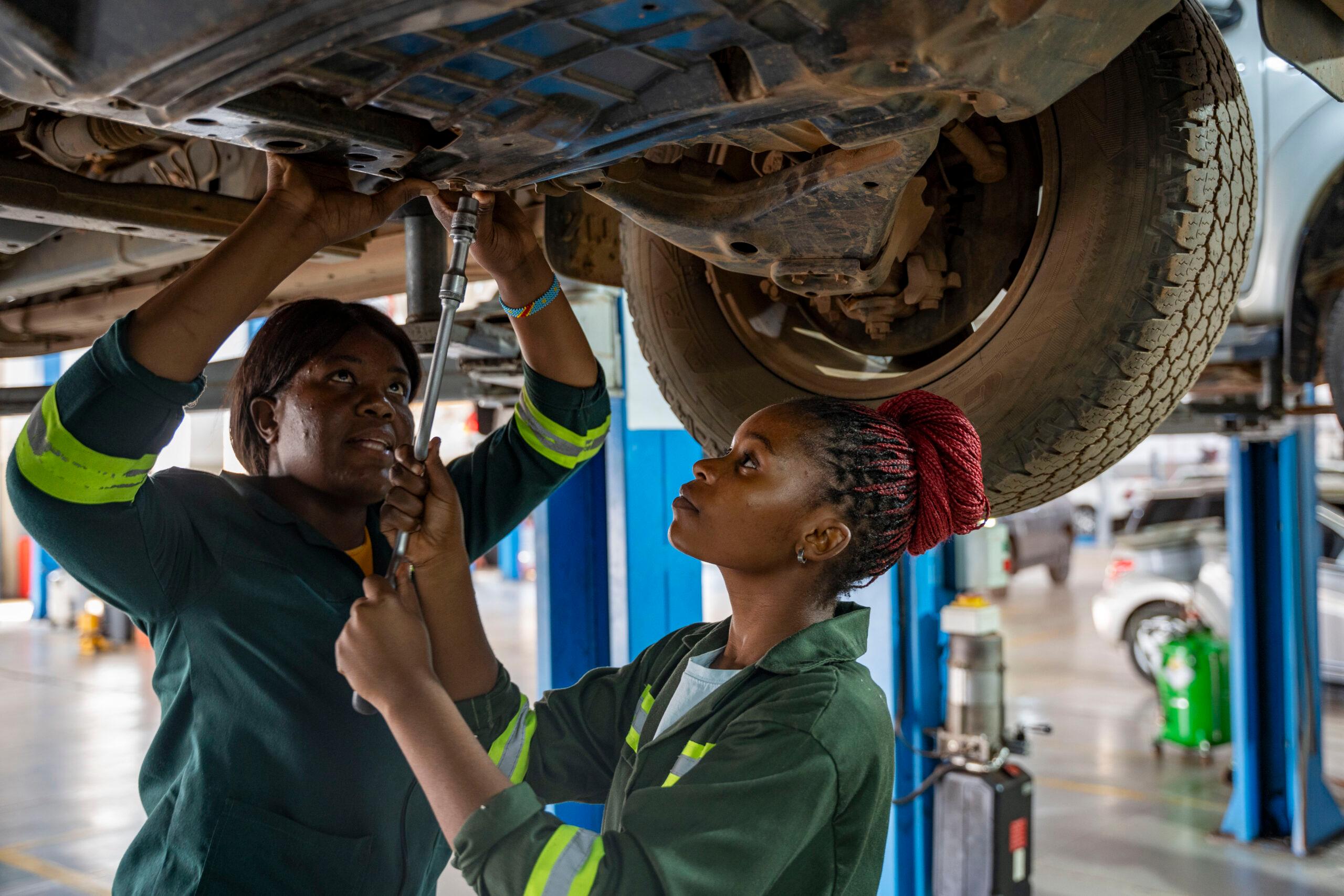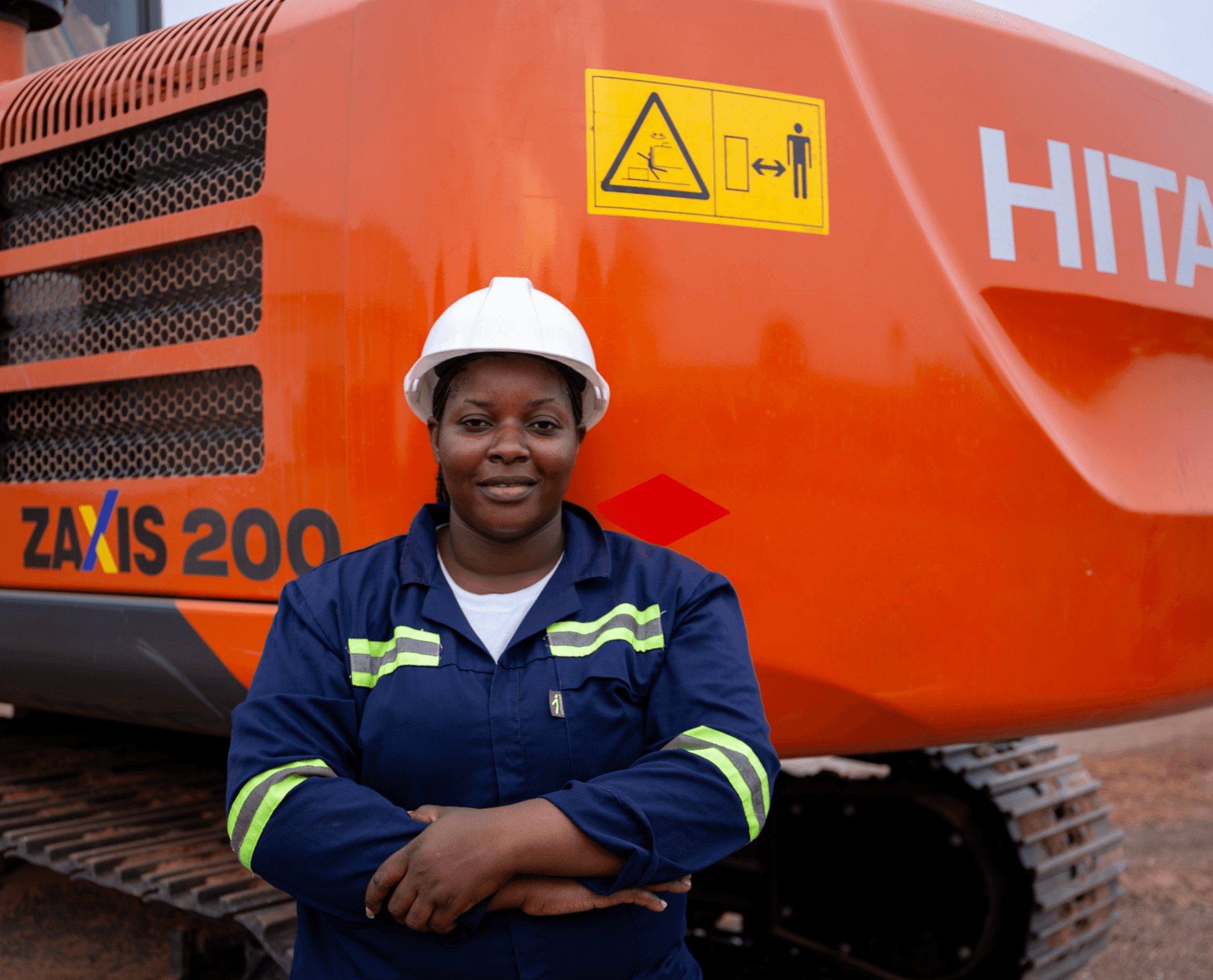Empowering Women through Industrial Skills: A Path to Sustainable Growth
On International Women’s Day, we highlight women’s role in industrial skills development. Public-Private Development Partnerships (PPDP) empower women in male-dominated industries, fostering economic growth, sustainability, and inclusivity.
- February 24, 2025
- By Callie Patten

Ahead of International Women’s Day, it is crucial to recognize the role of women in industrial skills development and how their participation contributes to economic growth and sustainability. Despite significant progress, women remain underrepresented in technical and vocational education, particularly in industries traditionally dominated by men, as limited access and discrimination continue to prevent women from fully contributing to industrial progress.
UNIDO’s LKDF is actively working to dismantle these barriers through its Public-Private Development Partnerships (PPDP). By promoting gender-inclusive industrial skills training, LKDF ensures that women are included in the workforce and empowered to help create a sustainable, equitable, and prosperous future.
Gender-Inclusive Training as a Driver of Sustainability
Gender inclusion in industrial skills training is not just an economic necessity—it is also a key component of sustainable development. Women and girls make up half of the global population and, consequently, half of its potential. However, women face significant societal and institutional barriers to job access. According to the International Labour Organization (ILO), the jobs gap, or the number of people who want to work but do not have a job, stands at a striking 24.3% for women in industrializing economies, compared to 17.4% for men. This issue is especially evident in industries traditionally dominated by men, such as construction, transportation, and mining, where women hold just 37% of the jobs globally. Barriers such as limited access to technical education, societal biases, and hiring discrimination continue to prevent women from accessing training opportunities and positions in these high-demand sectors.
Through PPDP projects, LKDF supports the establishment and upgrading of local technical and vocational training centers to help meet the labor market’s increasing demand for skilled employees. These centers offer gender-inclusive training and are designed to foster a supportive learning environment, free of gender stereotypes. This not only bridges the employment gap but opens new career opportunities for women, strengthening industrial sustainability by fostering industries that prioritizes social and environmental responsibility.
Success Stories: Women Leading Change
Across LKDF-supported training academies, female trainers are proving that they belong in industrial sectors and that their contributions are transformative.

From breaking stereotypes as professional driver trainers and carpentry instructors, these women are blazing the trail for gender equality in industry, following their dreams and inspiring their students to follow suit.
Mekdes Tesfaye, a graduate of the Misale Driver Training Academy, broke through barriers to pursue her dream career. “I know that this profession was shunned by most women when I first decided to take the training. But, since it was my dream to become the best professional driver trainer, I decided to complete my training at Misale Driver Training Academy. After training with UNIDO’s Misale, I managed to pursue the career that I love the most, with a better salary and better working conditions.”
Like Mekdes, many women are using training programs to turn their aspirations into reality. These initiatives are not just about gaining skills—they are opening doors to new opportunities and helping women achieve long-held dreams.

As Esther G.I. Javillie, a professional carpentry and joinery instructor supporting UNIDO’s Youth Rising project in Liberia, explains, her goal is to empower others: “I’ve always wanted to empower people, to help them rise and reach a point where they can at least do something for themselves.”
This philosophy is echoed by Audrey Chibwe, a trainer supporting the ZAMITA project in Zambia, who is witnessing firsthand the transformation of young women gaining new skills. “They are not just learning a trade; they are proving that women can excel in any field they choose. I see a future where the gender gap in engineering is a thing of the past.”

These stories show the tangible and transformative impact of inclusive training programs on women’s lives and careers. Through education and training, women are not only defying expectations—they are proving that their place in industry is undeniable.
Building an Inclusive and Sustainable Future, Together
Sustainable development efforts must consider the needs of all people, particularly those who have historically been excluded from decision-making processes. By fostering inclusive training environments, strengthening partnerships, and continuously measuring impact, LKDF is paving the way for a more equitable and sustainable industrial landscape, building build a future where women are not just participants in industrial development but leaders shaping its direction.
On this International Women’s Day, let’s commit to breaking barriers, challenging biases, and empowering women through industrial skills development. Gender equality and sustainability go hand in hand—by ensuring women’s full participation in the workforce, we can drive inclusive sustainable development, ensuring prosperity for all.



